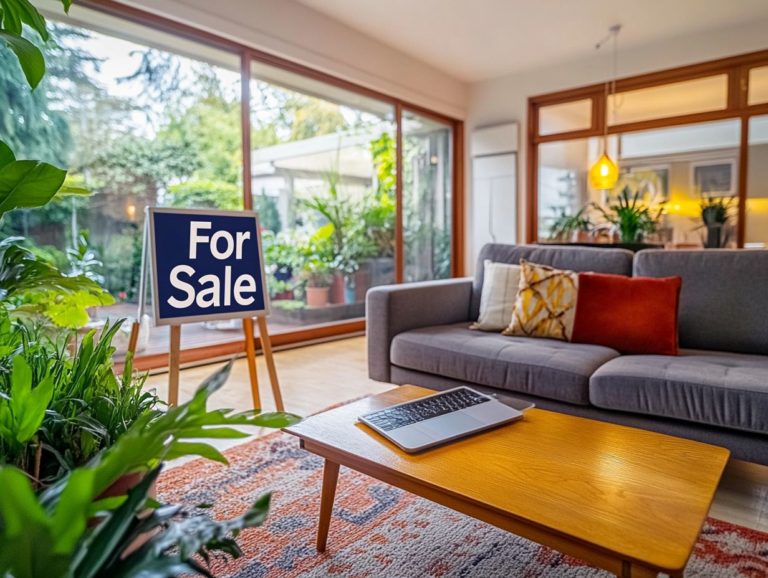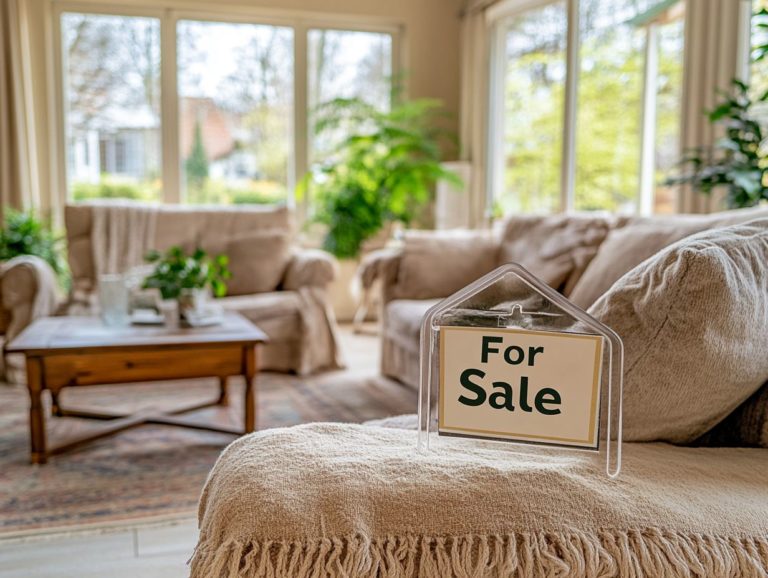Tips for Selling a Fixer-Upper
Selling a fixer-upper can be a thrilling yet challenging journey. With the right strategies in place, you can reveal the hidden potential of your property and draw in the ideal buyers.
This guide delves into essential elements, from grasping current market trends and evaluating your property s condition to setting a realistic price and crafting an effective marketing plan.
You ll also discover negotiation tactics and essential repairs. This will equip you with the confidence you need at every step of the selling process. Immerse yourself in the insights on how to transform your fixer-upper into a coveted treasure!
Contents
- Key Takeaways:
- Understanding the Market for Fixer-Uppers
- Assessing the Condition of Your Property
- Setting a Realistic Price
- Marketing Your Fixer-Upper
- Negotiating with Potential Buyers
- Making Necessary Repairs and Improvements
- Finalizing the Sale
- Frequently Asked Questions
- What is a fixer-upper?
- What are some tips for selling a fixer-upper?
- Should I make any repairs before selling my fixer-upper?
- How can I attract buyers for my fixer-upper?
- What are some common mistakes to avoid when selling a fixer-upper?
- Is it better to sell a fixer-upper as-is or make some updates before listing it?
Key Takeaways:
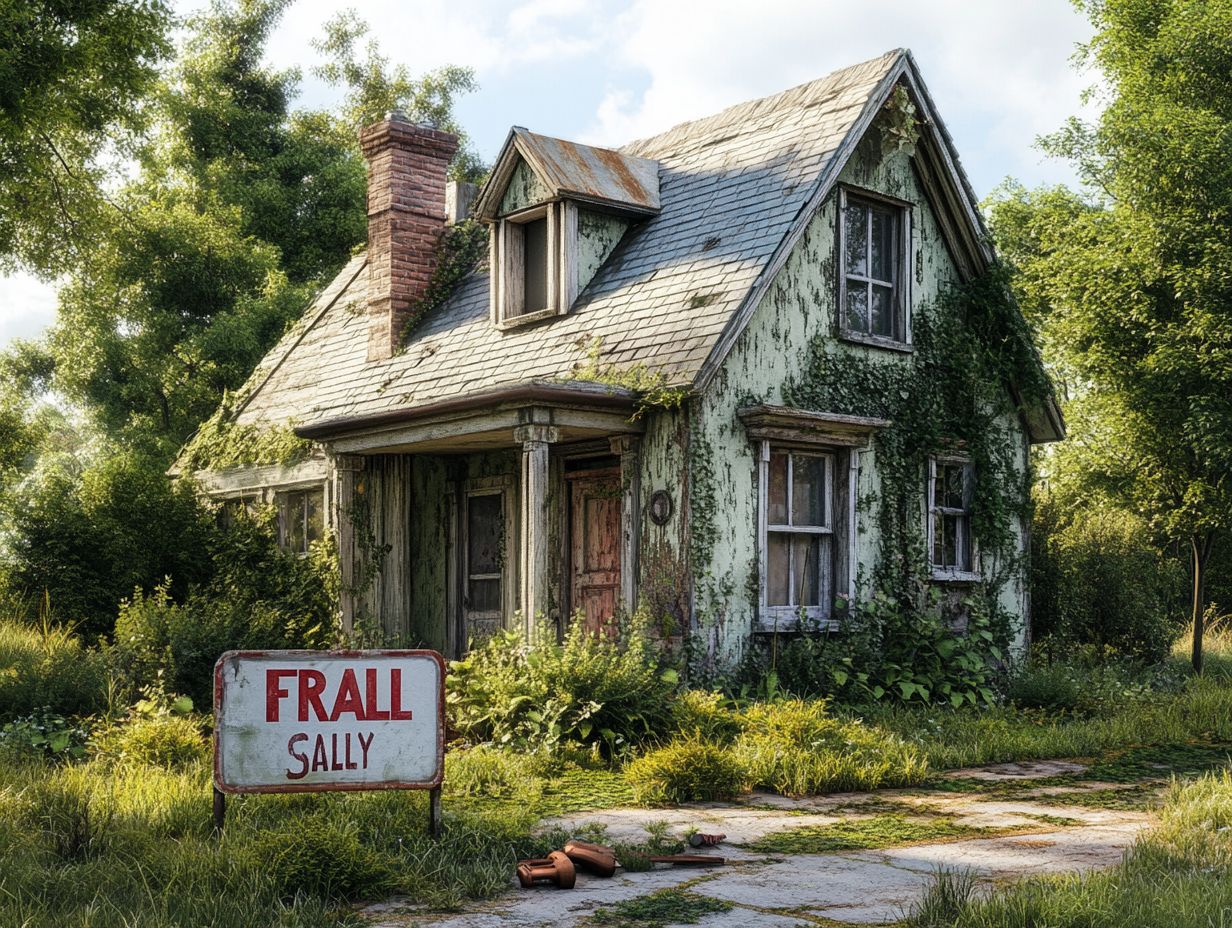
- Understanding the current market trends and demographics is crucial for selling a fixer-upper successfully.
- Prioritizing and budgeting for necessary repairs is important in assessing the condition of your property and setting a realistic price.
- Targeting the right audience, highlighting the potential of your property, and utilizing effective negotiation strategies can help in marketing and closing the deal on your fixer-upper.
Understanding the Market for Fixer-Uppers
Understanding the market for fixer-uppers requires a careful review of current real estate trends. Elements such as market value, buyer preferences, and the influence of people who pay for homes in full without a loan play pivotal roles in the selling process.
Homeownership trends are changing. It’s important to recognize the potential of these properties not only in their current state but also as lucrative investments for discerning buyers.
Collaborating with an experienced real estate agent can offer you invaluable insights into property listings and pricing strategies. This can maximize your selling opportunities.
Current Trends and Demographics
Current trends in the housing market indicate a growing interest in fixer-uppers, especially among first-time homebuyers and savvy investors eager for renovation opportunities.
This shift is driven by the rising costs of newly constructed homes, prompting many potential buyers to rethink their strategies.
As more millennials and younger generations aspire to enter the market, they find themselves attracted to the affordability that fixer-uppers can provide. These individuals aren t just looking for a place to call home; they want to build equity through personalization and renovations.
Market analysis shows that buyers increasingly prefer properties they can transform to reflect their unique tastes. This showcases a desire for greater control over their living spaces. The demand for homes needing some repairs is rising, fundamentally altering the traditional pathways of homeownership.
Assessing the Condition of Your Property
Assessing the condition of your property is an essential step in the selling process, particularly for fixer-uppers. This evaluation allows you to identify any visual negatives that might turn potential buyers away. It influences their perception of the property’s overall value.
By conducting a comprehensive home inspection, you can uncover necessary repairs and estimate associated costs, which will inform your renovation strategy. Tackling straightforward repairs can significantly enhance your property s appeal, attracting more interested buyers.
Identifying Key Areas for Improvement
Identifying key areas for improvement in your fixer-upper can significantly elevate its market value and appeal to potential buyers. Focus on both aesthetic and functional enhancements.
Consider strategic renovations, such as:
- Refreshing the exterior with a new coat of paint.
- Installing energy-efficient windows that not only improve insulation but also enhance visual appeal.
Landscaping updates, like incorporating native plants or decorative stones, can create a welcoming entryway that captivates prospective buyers. Utilizing renovation loans can help alleviate the financial burden of these projects, allowing you to invest in high-impact improvements.
It s crucial to document the costs and benefits of each upgrade. Many renovations can recoup upwards of 70% of their initial investment, helping position your property competitively in the market.
Start implementing these strategies today to maximize your property’s potential!
Setting a Realistic Price
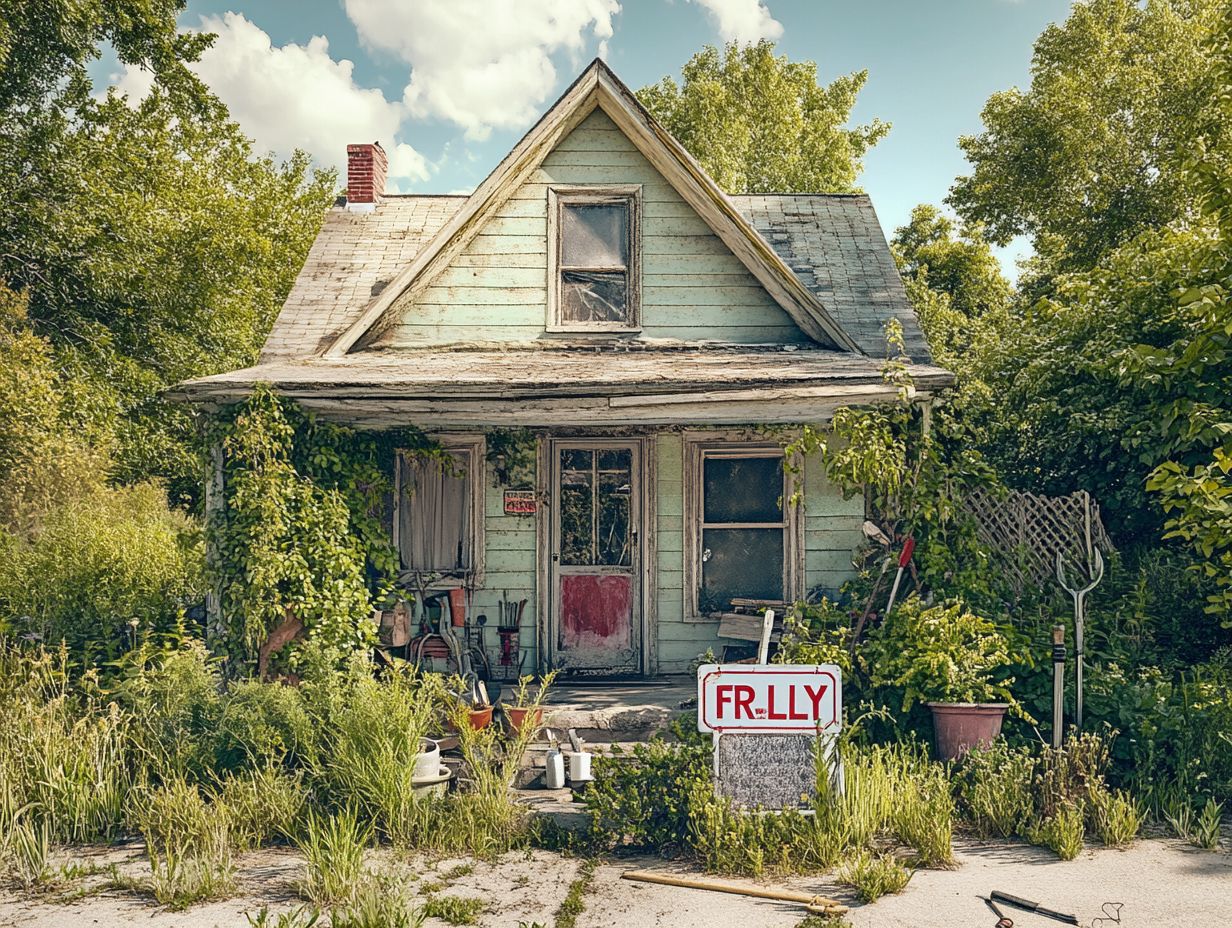
Setting a realistic price for your fixer-upper is key in today s competitive market. It determines how quickly your home sells and how successful the sale will be.
By strategically pricing your property, you can attract genuinely interested buyers while avoiding the pitfalls of underselling. This thoughtful approach ensures that you maximize both interest and value in your selling journey.
Factors to Consider in Pricing
When you re figuring out the price of your fixer-upper, several factors come into play. A thorough market analysis is essential, taking into account recent sales, repair costs, and what potential buyers in your area are looking for.
To gather relevant data for your market analysis, start by exploring real estate websites and local listings to find comparable properties that have sold recently. This approach gives you a clearer picture of current pricing trends.
It s important to assess the competitive landscape by identifying similar fixer-uppers nearby and evaluating their pricing strategies. Don t overlook local amenities and neighborhood improvements, as these can significantly enhance your understanding.
By combining all this information, you can arrive at a fair offer that accurately reflects the property’s condition and the current market dynamics. This ensures you present an appealing proposition for interested buyers.
Marketing Your Fixer-Upper
You must market your fixer-upper effectively to capture buyer interest fast! This endeavor requires a carefully crafted strategy, including a compelling property listing and enticing home staging that highlights the unique potential of your property.
Targeting the Right Audience
Targeting the right audience for your fixer-upper is essential for effective marketing, especially when considering specific buyer preferences. Understanding the diverse array of potential buyers can significantly elevate your outreach strategy.
First-time homebuyers often seek affordable options that allow them to invest in their future without straining their finances. Seasoned investors, on the other hand, look for value-add opportunities where they can achieve substantial returns after renovations.
Some buyers thrive on the challenge of renovation projects, eager to transform a diamond in the rough into their dream home. By employing targeted messaging tailored to these distinct groups, you can engage your audience more effectively, highlighting the opportunity, potential, and value of a fixer-upper.
Highlighting the Potential of Your Property
Highlighting the potential of your property is crucial to showcasing its value to prospective buyers. Focus on unique features that set your home apart and possibilities for design and renovation projects that could transform the space into something special.
Emphasizing advantages like location, proximity to schools, and access to local amenities can significantly enhance your home’s appeal. Buyers are often attracted to flexible layouts that allow for easy modifications, such as open-concept designs or spacious outdoor areas for future expansion.
Showcasing energy-efficient upgrades or smart home technology can resonate beautifully, underscoring immediate comfort and long-term savings. Creating a compelling narrative around your property s potential for equity growth through smart investments reinforces that this isn t just a home; it s a future asset poised for promising returns.
Negotiating with Potential Buyers
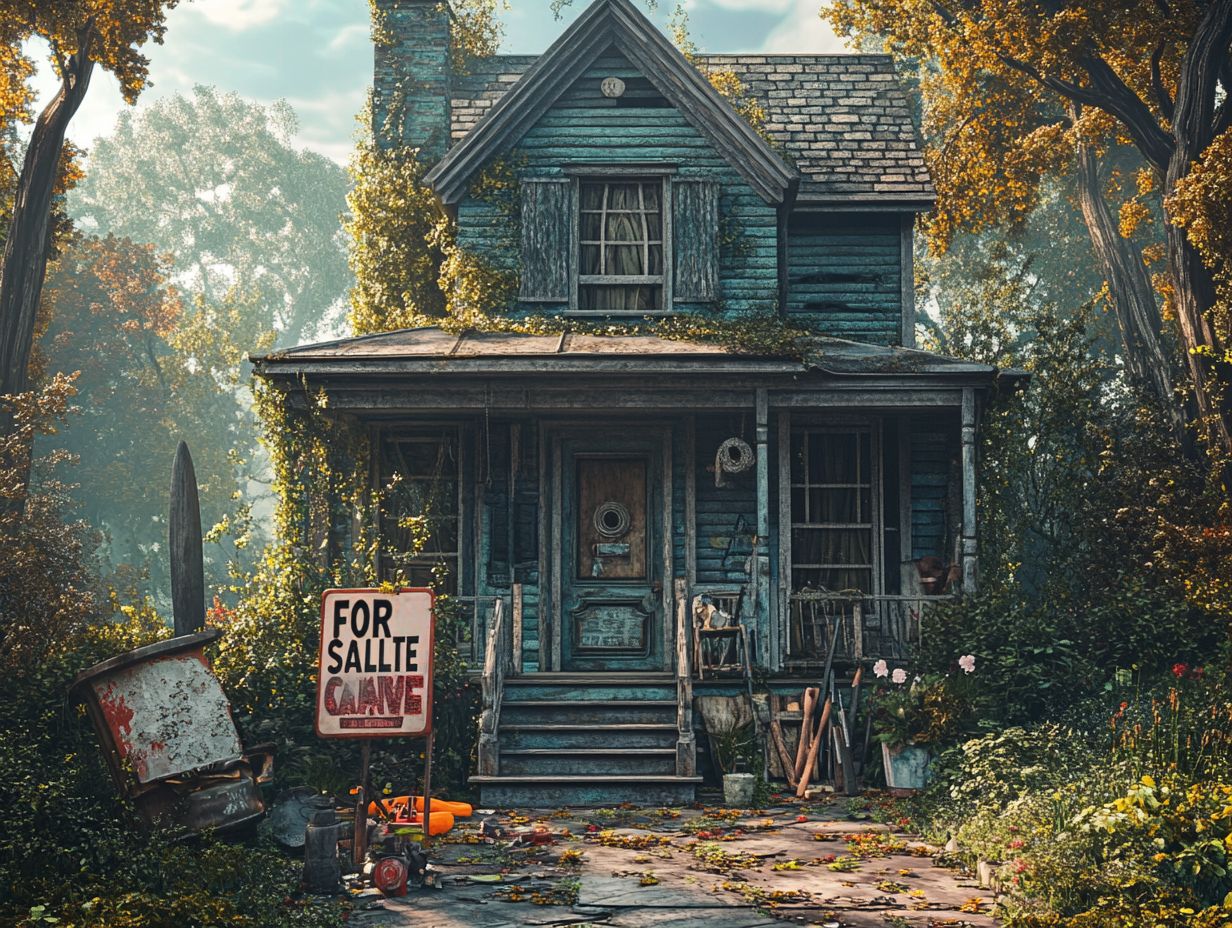
Negotiating with potential buyers demands a strategic approach that harmonizes your aspiration for a fair offer with the practicalities of buyer inspections and potential closing costs.
Create a space where both you and the buyer can agree on terms that satisfy everyone. This approach leads to a better negotiation outcome.
Strategies for Closing the Deal
Employing effective strategies for closing the deal is essential. This ensures both you and the buyer walk away satisfied, particularly when meeting buyer expectations and negotiating a fair offer.
To kick off the closing process, gather all necessary documentation. Think purchase agreements, disclosures, and any related financial statements.
The buyer will typically conduct inspections to evaluate the property’s condition. This opens the door for negotiating any necessary repairs.
Once inspections are wrapped up and both parties are content, you ll enter the final negotiation phase. This often involves tweaking the price or conditions based on what s been uncovered.
Clear communication at this stage is crucial. It helps address any lingering concerns and lays the foundation for a smooth closing. This ensures all legalities are adhered to without a hitch.
Making Necessary Repairs and Improvements
Making necessary repairs and improvements is a crucial step in preparing your fixer-upper for sale. By prioritizing these renovations, you not only enhance the property s value but also increase its appeal to potential buyers.
Consider available financing options to manage costs effectively during this process.
Prioritizing and Budgeting for Repairs
Prioritizing and budgeting for repairs is vital for maximizing your investment. This ensures you focus on home improvements that truly enhance your property’s overall value.
Assess both your immediate repair needs and long-term renovation goals. This will help you determine where to allocate your limited resources more effectively.
Evaluating potential returns on your investments will guide your decisions. Focus on repairs or upgrades that might yield the highest increase in property value.
Keep in mind local market trends, comparable properties, and the quality of finishes. These factors can significantly influence your expected returns.
Exploring various budgeting techniques, such as cost estimating and financing options like home equity loans or renovation mortgages, can provide the necessary capital for these improvements.
Striking a balance between urgent repairs and enhancements is essential. Aim for improvements that not only enhance livability but also appeal to future buyers.
Finalizing the Sale
Finalizing the sale of your fixer-upper is a pivotal moment. You ll need to navigate the closing process with care.
Address legal considerations meticulously. Ensure every piece of paperwork is completed with precision.
This attention to detail is essential. It helps meet buyer expectations and secure a fair offer that reflects the value of your property.
Legal Considerations and Closing Process
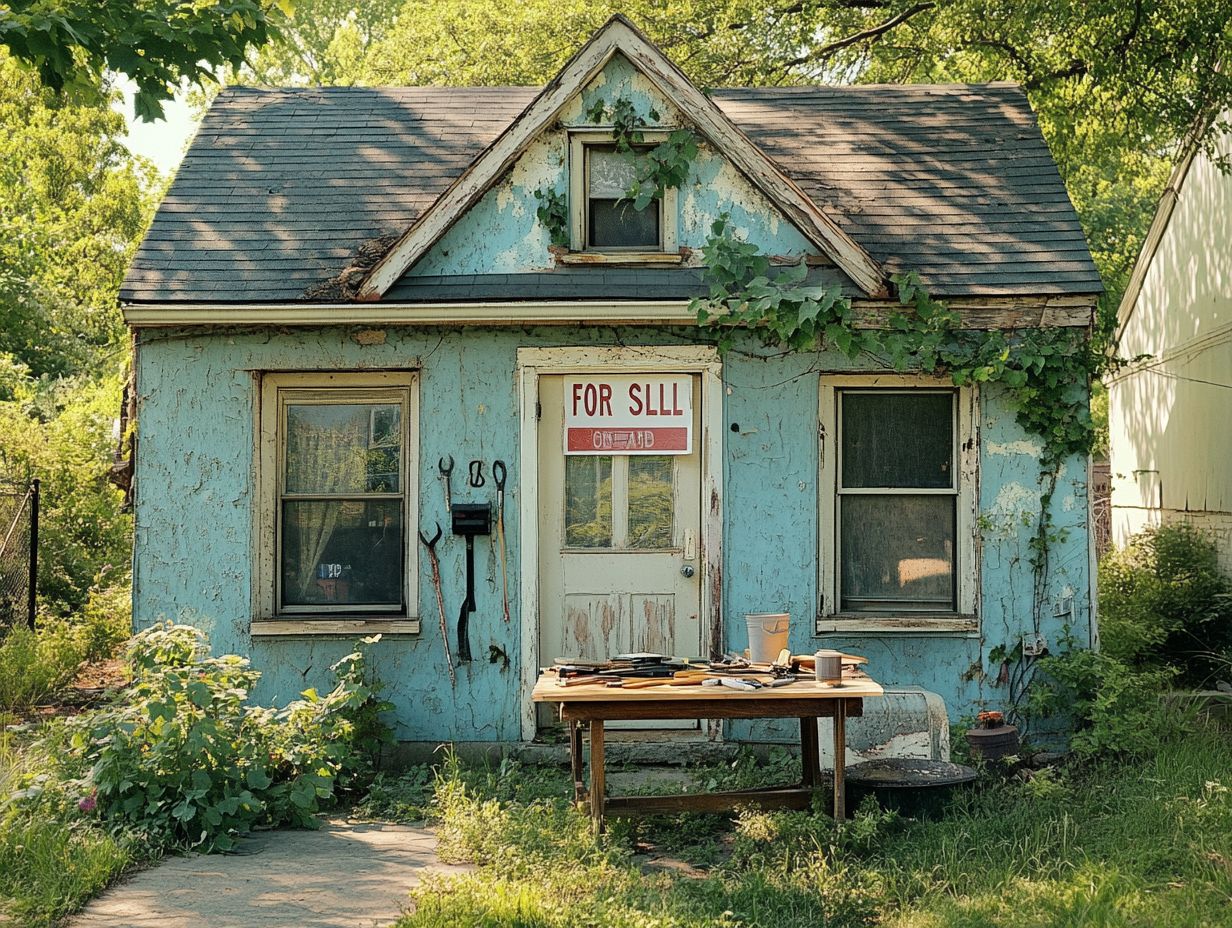
Understanding the legal considerations and the closing process is crucial when selling or buying a property. This journey involves navigating contracts, closing costs, and ensuring transparency throughout the transaction.
Your obligation as a seller is to provide comprehensive disclosures about the property’s condition. This ensures that potential buyers are well-informed about any existing issues.
As a buyer, conduct thorough inspections to assess the property’s value. This helps uncover potential problems that may not be immediately visible.
These legal aspects not only protect your interests but also foster trust during what can often feel like an overwhelming process. Compliance with state laws and regulations underscores the importance of having knowledgeable professionals by your side to guide you effectively through each step.
Frequently Asked Questions
What is a fixer-upper?
A fixer-upper is a property that needs repairs or renovations before it s livable. These properties are often cheaper and can be a great chance for buyers to invest in a property they can upgrade themselves.
Act now! Reach out for help or start your journey in buying or selling a fixer-upper.
What are some tips for selling a fixer-upper?
- Set a realistic price for your fixer-upper. Consider renovation costs when deciding the listing price.
- Highlight the potential: Showcase the property with before and after pictures or by using digital tools to show how it can look.
- Be transparent: Always be honest about the property s condition and any major repairs that are needed.
- Consider financing options: Offering financing can attract more buyers who may need assistance in purchasing a fixer-upper.
- Market to the right audience: Target buyers specifically looking for fixer-upper properties.
- Stage the property: Make simple and affordable updates to give potential buyers an idea of how the property can look.
Should I make any repairs before selling my fixer-upper?
Your choice depends on the repair needs and your budget. If the repairs are minor and low-cost, it might be worth fixing them before listing. However, major repairs requiring significant investment may be better left for the buyer to handle.
How can I attract buyers for my fixer-upper?
Aside from proper pricing and marketing, offer incentives like a credit towards renovations or a home warranty. Hosting an open house can also showcase the property s potential to interested buyers.
What are some common mistakes to avoid when selling a fixer-upper?
- Overpricing the property: Setting an unrealistic price can turn off potential buyers.
- Neglecting curb appeal: The exterior is the first impression; make it count!
- Always be honest about the property s condition: This builds trust with potential buyers.
- Not showcasing potential: Help buyers envision the possibilities through staging or virtual tools.
- Ignoring financing options: Many buyers may need assistance, so offering financing can draw in more interest.
Is it better to sell a fixer-upper as-is or make some updates before listing it?
It ultimately depends on your budget and the extent of the repairs. If minor repairs can be done inexpensively, consider making updates. For major repairs that require substantial investment, selling as-is may be the best option.
Ready to sell your fixer-upper? Contact us today for expert advice!

